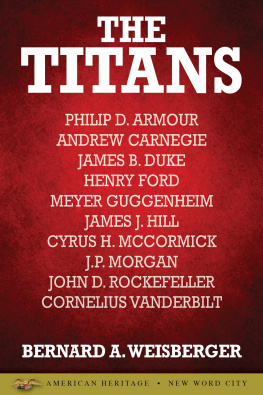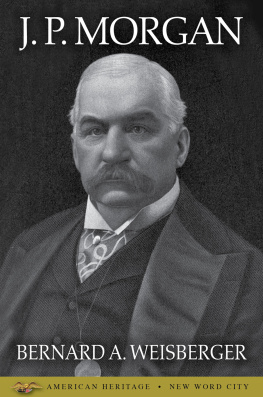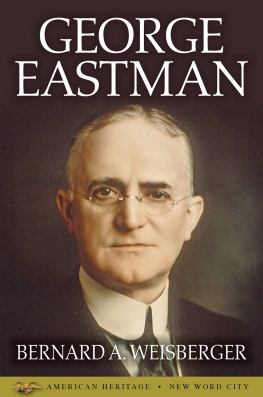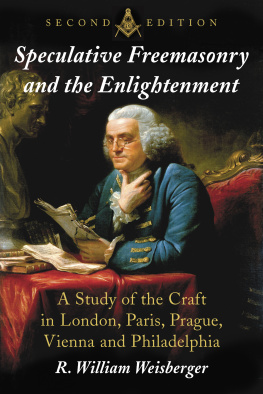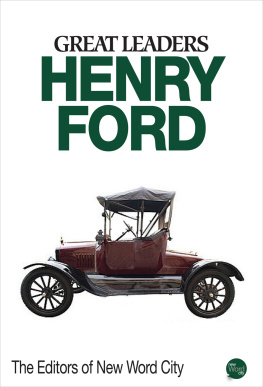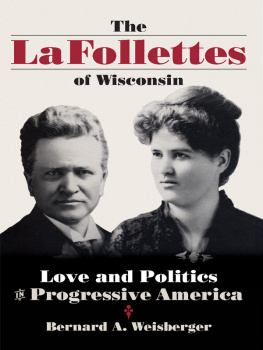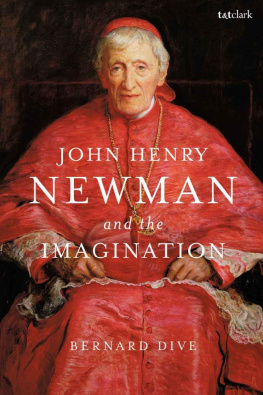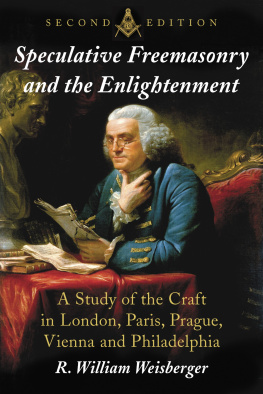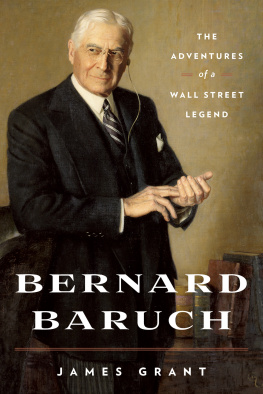Bernard A. Weisberger - The Titans
Here you can read online Bernard A. Weisberger - The Titans full text of the book (entire story) in english for free. Download pdf and epub, get meaning, cover and reviews about this ebook. year: 2016, publisher: New Word City, Inc., genre: Art. Description of the work, (preface) as well as reviews are available. Best literature library LitArk.com created for fans of good reading and offers a wide selection of genres:
Romance novel
Science fiction
Adventure
Detective
Science
History
Home and family
Prose
Art
Politics
Computer
Non-fiction
Religion
Business
Children
Humor
Choose a favorite category and find really read worthwhile books. Enjoy immersion in the world of imagination, feel the emotions of the characters or learn something new for yourself, make an fascinating discovery.
- Book:The Titans
- Author:
- Publisher:New Word City, Inc.
- Genre:
- Year:2016
- Rating:3 / 5
- Favourites:Add to favourites
- Your mark:
- 60
- 1
- 2
- 3
- 4
- 5
The Titans: summary, description and annotation
We offer to read an annotation, description, summary or preface (depends on what the author of the book "The Titans" wrote himself). If you haven't found the necessary information about the book — write in the comments, we will try to find it.
Here, from the eminent historian Bernard A. Weisberger, are the dramatic stories of the giants of the Gilded Age, the men who made America the mightiest nation on Earth - Philip D. Armour, Andrew Carnegie, James B. Duke, Henry Ford, Meyer Guggenheim, James J. Hill, Cyrus H. McCormick, J. P. Morgan, John D. Rockefeller, and Cornelius Vanderbilt.
The Titans — read online for free the complete book (whole text) full work
Below is the text of the book, divided by pages. System saving the place of the last page read, allows you to conveniently read the book "The Titans" online for free, without having to search again every time where you left off. Put a bookmark, and you can go to the page where you finished reading at any time.
Font size:
Interval:
Bookmark:

The United States entered the nineteenth century as a quiet land of family farms, villages, and a few small cities clustered along the Atlantic seaboard. By the end of the century, it was on the way to becoming the mightiest industrial power in the world, with teeming cities, humming factories, and great agricultural complexes in a nation stretching from sea to sea. The Titans is the story of the men who made possible this enormous transformation.
It took intelligence, imagination, and determination to make a mark on those brawling times, but if a man was shrewd and persistent enough - and had more than a little luck - his reward could be money in quantities undreamed of by previous generations.
In the decades after the Civil War, the names to contend with in American life were those of Armour, Duke, Guggenheim, Hill, Rockefeller, and other masters of finance and industry. More influential than the nations elected leaders, they formed an aristocracy of wealth in a land that had taken pride in the equal rights of all its citizens. Business, as historian Allan Nevins has observed, became the field to which the majority of Americans looked for distinction, authority, and self-expression. A whole generation pushed into it partly for money, partly for the satisfaction of successful competitive effort, partly for eminence and power.
The ten captains of industry in this book shared, even as young men, an ability to size up a situation and shape their actions accordingly. Carnegie was seventeen when he sent out orders to untangle a railroad wreck in his employers absence. Ford was not yet twenty when he abandoned the idea of becoming a watchmaker because I figured out that watches were not universal necessities, and therefore people generally would not buy them... I wanted to make something in quantity. McCormick was twenty-one when he designed the reaper that brought him fame. Vanderbilts farsighted decision that steam was the coming thing was reached when he was twenty-two.
Few of them ever lost the capacity for instant decision. Sixty-three-year-old J. P. Morgan, when solicited for a donation to Harvard Universitys new medical school, glanced for a moment at the plans unrolled on his office table. Then he stabbed down three times with his finger: I will build that, and that, and that. Good morning, gentlemen. One minute to spend $1 million.
Like other aristocrats, the captains of industry often abused their privileges. Their blunt and forceful methods of doing business raised storms of protest from those who were exploited in the process. Historians and journalists - and eventually legislators - of the late nineteenth century indicted many of Americas industrial titans as robber barons. Following generations, while still condemning the most ruthless of these men, have reached a new appreciation of their role in building industrial America and thereby bringing security, hope, and prosperity to its people.
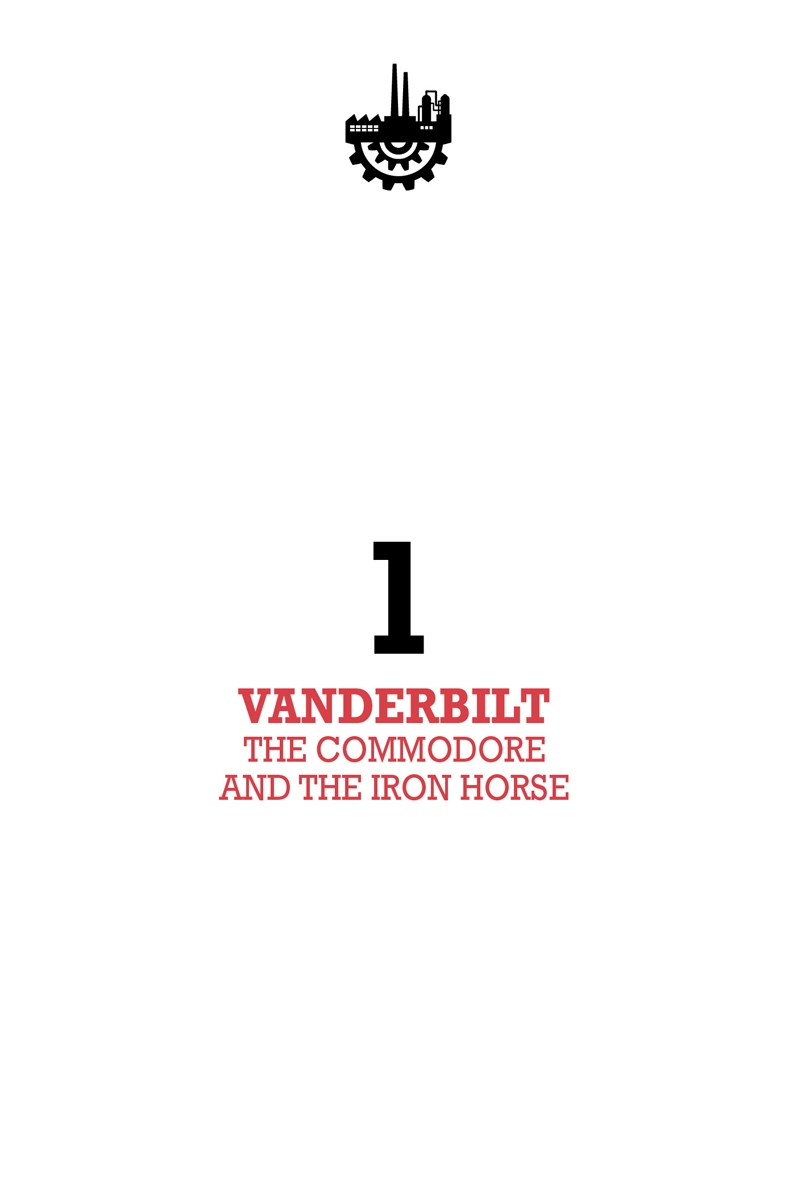
In the summer of 1810, a sixteen-year-old boy who lived on Staten Island in New York harbor decided to go into the shipping business. He persuaded his mother to lend him $100 out of the precious family savings and bought a periauger - a tiny boat with two masts and a flat bottom. Then the lad offered a ferry service between Staten Island and the lower tip of Manhattan, five miles away. The fare was eighteen cents each way, and a quarter for the round trip. Every day, the little boat left on schedule, and despite tricky tides, choppy waves, and high winds, it was rarely late. The work was wet and hard. It was also the cornerstone of a career for young Cornelius Vanderbilt.
In those days, barely 100,000 people lived in New York. James Madison was president of the United States, the fourth man to hold the office he had helped write into the Constitution. Cities like Buffalo, Cincinnati, and St. Louis were rough frontier settlements; Chicago did not even exist. The West of forest and Indian began at the Alleghenies, at some points less than 100 miles inland from the Atlantic coast. Most Americans lived on farms, wore homespun clothing, read by oil lamps, and warmed themselves at wood fires. Men and goods moved by the power of wind and animal muscle, at speeds of under ten miles per hour. It took two full days to make the ninety-mile trip from New York to Philadelphia.
By the time Vanderbilt died, nearly seventy years later, the steam engine had changed the face of the land. Steam provided a new and gigantic source of power that men could add to their own as they toiled to unlock the hidden treasure of the American continent. Steam engines could power a threshing machine in an Iowa harvest field, a drill excavating a copper mine in Montana, or a loom spinning cotton yarn into cloth in a Rhode Island textile factory. Steam locomotives, hurtling over a network of railroads, could bring the products of one area to fill the needs of another. Farm produce from the prairies, bales of cotton and tobacco from the South, factory-made goods from the East, mineral ores from Minnesota and the Rockies, crisscrossed the country. Most important of all, the trains carried people. First came pioneers, prospectors, and men looking for quick money. Then came immigrants, families with children looking for a place to settle down and get to work on turning their dreams into reality. But faster than the trains, which now could carry passengers the 900 miles from New York to Chicago in a little over twenty-four hours, was the electric spark of the telegraph, which could rap out a message in San Francisco and New York simultaneously. That message was the new and equally marvelous age of electricity.
In 1877, the year of Vanderbilts death, the telegraph was already thirty years old, the telephone had just been invented, and practical electric motors and electric lights were just around the corner. In another twenty years, gasoline engines would be applied to transportation. Then men would travel at ever-increasing speeds over an ever-improving network of roads, with no need to be bothered with boilers and rails. But why bother with keeping to the roads? And so, eventually, men took to the air, powering their airplanes with highly developed gasoline engines. The era of steam was only the opening chapter in the story of a modern world.
Millions of men helped bring this new world to birth: inventors and scientists, soldiers and statesmen, pioneer settlers and industrial laborers. But a much smaller number of men organized the work of others. They brought the savings of a rapidly growing population - investment capital in the language of economics - into working patterns with the new machines and the old raw materials. In doing so, many of them created giant industrial and transportation empires. Because it all happened so quickly and on such a vast scale, these so-called captains of industry grew rich and powerful almost overnight. They were, like characters in a fairy tale, gifted with the magic powers of imagination and ability, with necessity playing the part of fairy godmother. Like all men who gain control over others, they were both respected and feared: admired by those who envied their dynamic drive, or hated by those they ruined in their determination to make money and get ahead, whatever the cost. Few of these larger-than-life-size men found time in their busy lives for reflection or gentleness. Some of them, in their impatient strength, threatened the values of equal opportunity and government by law and consent which support American democracy at its best. Yet all of them, good and bad alike, made important contributions to national growth.
Font size:
Interval:
Bookmark:
Similar books «The Titans»
Look at similar books to The Titans. We have selected literature similar in name and meaning in the hope of providing readers with more options to find new, interesting, not yet read works.
Discussion, reviews of the book The Titans and just readers' own opinions. Leave your comments, write what you think about the work, its meaning or the main characters. Specify what exactly you liked and what you didn't like, and why you think so.

